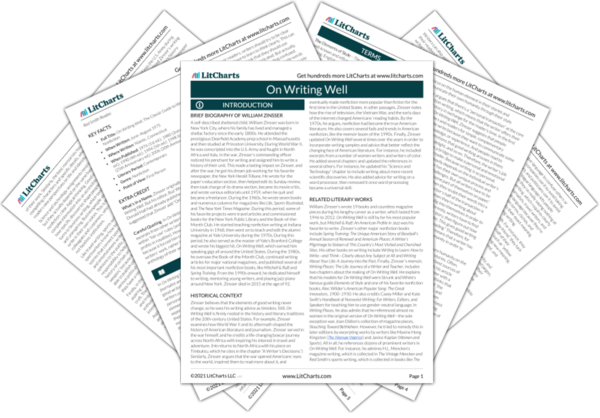Zinsser rests on his basic principle about the human element in storytelling: living, breathing people are more compelling than abstract nouns and technical language. This is true of style as well as content—the best stories involve real people writing about real people. Unfortunately, Zinsser is fighting an uphill battle, because hierarchical institutions like businesses are generally designed to stifle human connection, not foster it. But he hopes that good writing can help people see the problems in this culture and, eventually, take steps to shift it.


